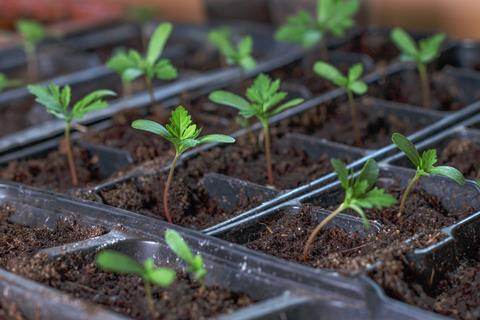Royal Horticultural Society will support horticultural sector’s transition to peat-free growing media through a new PhD

A survey by the Royal Horticultural Society (RHS) suggests that 90 per cent of UK plug plant producers will go peat-free within the next five years.
The survey of growers and garden centres – completed by half of the UK’s major plug plant producers – found that 50 per cent of respondents plan to be peat-free within two years, while 40 per cent expect to transition away from peat in three to five years.
It comes as the UK is pushing to protect its shrinking peatlands, which are a carbon sink and play a crucial role in reducing climate change.
The main drivers listed for plug producers going peat-free were a desire to make the change before any horticultural trade ban, as well as customer demand. Respondents said growers’ requests for peat-free plugs have increased.
Meanwhile, costs around the performance of peat-free growing media were named as the main barriers preventing producers from transitioning.
As a result, the RHS is looking to support the horticultural sector’s transition to peat-free growing media through a new PhD aimed at advancing peat-free plug plant production systems.
The PhD is a collaboration between the RHS, the Centre for Agroecology Water and Resilience, Coventry University, plug plant growers, and growing media manufacturers.
The RHS said it wants to provide solutions to current gaps in the UK’s peat-free plug and young plant production techniques, as well as giving clarity on which plug plants are already available peat-free.
RHS head of environmental horticulture, Dr Mark Gush, said: “Peat-free plug plant production has proven to be a specific challenge as the industry transitions away from the use of peat…
“With a large majority of UK plug plant producers already anticipating the shift, this research will address a recognised knowledge gap and help unlock the complete transition to peat-free horticulture.”



